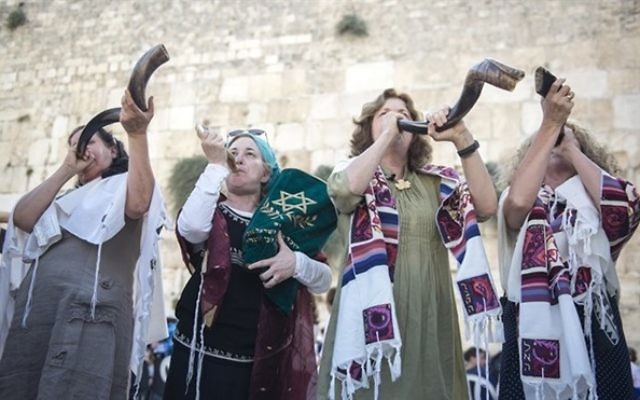Defining Judaism in the Jewish State
American Jews may practice Judaism and express our religiosity how we choose to do so. That is not necessarily the case in Israel.
American Jews may practice Judaism and express our religiosity how we as individuals, communities and institutions choose to do so. That is not necessarily the case in Israel.
In a February letter, the leadership of the Israel Movement for Reform & Progressive Judaism (Israel’s Reform movement) reached out to “Friends and Partners in the United States.”
The letter opened: “For many years, you have stood by our side. In the struggle to have the State of Israel recognize our Reform rabbis, in the struggle over equal recognition of non-Orthodox conversation, in the struggle to establish an egalitarian platform at the Kotel, in the struggle for freedom of religion and conscience, in the struggle for the basic idea that there is more than one way to be Jewish.”
In Israel, religiosity and religious practice are largely based on Orthodox interpretations of Judaism, legally sanctioned by Israel’s High Rabbinic Council. For example, Reform marriage ceremonies are not considered legally binding. Should an Israeli couple want to have a wedding officiated by a Reform rabbi, or any non-Orthodox rabbinic officiant, the wedding must occur outside Israel, and the union is considered a “civil marriage.”
Accordingly, the definition of “progressive Judaism” differs significantly in Israel and in the United States. As American Jews, we tend to associate progressive Judaism with liberal politics and associated activism. By contrast, while progressive Judaism in Israel shares certain aspects of this political agenda, it is more about redefining religiosity.
While many American progressive Jews’ key concerns involve their interactions with the outside world and Israeli governmental policies, progressive Jews in Israel are working to change the rules of engagement about Judaism itself within society and the law.
The struggle to define Judaism in Israel is playing out publicly in Israeli media and the judiciary, which protects the rights of the individual within a democratic setting.
It remains to be seen, but it seems unlikely that progressive Judaism can gain enough traction to overturn the legal hold the Rabbinic Council has on civil procedure and religious practice. What is certain is that Israelis are finding ways to express their own definitions of Judaism in ritual and prayer outside Orthodox streams.




comments